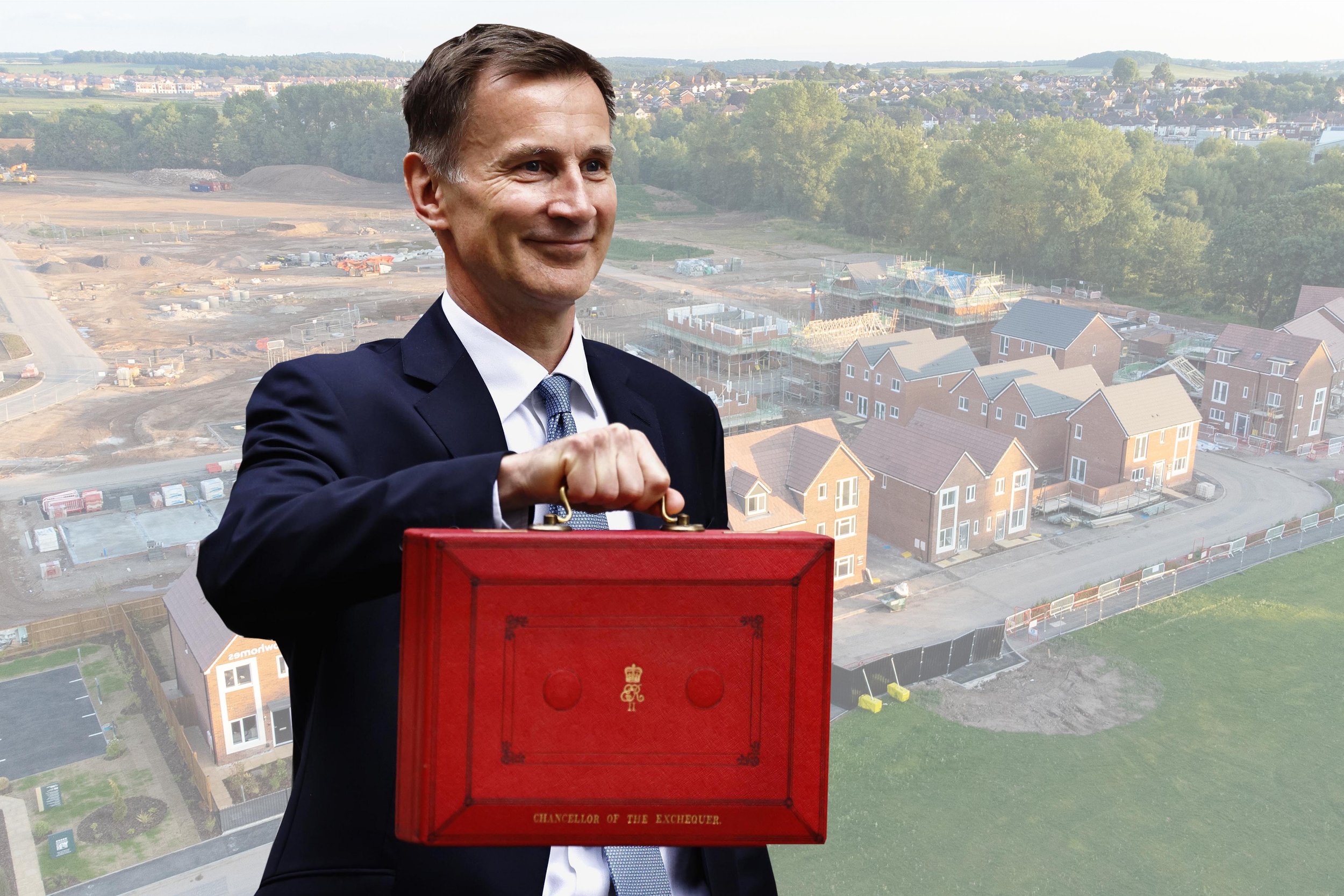The Chancellor’s Autumn Statement – what’s in it for developers, builders and landowners?
Jeremy Hunt sought to boost business investment and support those who work hard in his Autumn Statement yesterday. Housebuilders and landowners were hoping for concrete policies to lift the sector. They were offered a few headline pledges, but it’ll take time to find out if they work.
A statement from the Chancellor of the Exchequer is generally a mix of measures influenced by the state of the economy and those driven by political necessity. With the Tories staring down the barrel of a potentially catastrophic general election result next year, Jeremy Hunt needed to concentrate on the politics.
He did so, in as much as he could, with a few headline grabbing measures. They included a cut in the rate of National Insurance, down from 12% to 10%, saving average taxpayers just under £500 a year, a raft of measures to bring about a promised £20bn investment in business, and a crackdown on benefit claimants who refuse to take a job.
A number of policies designed to help housebuilders and landowners keen to develop sites were announced, but direct help for first time buyers or downsizers, seen as vital by the housebuilding sector to give a sluggish market a push, were absent.
Hints at a return to a version of the Help to Buy Scheme failed to materialise while stamp duty changes, which could have encouraged older homeowners to move out of larger properties, providing more options for families to buy, failed to make the Chancellor’s speech.
He did attempt to throw off the accusation that the Conservatives are the party of the “blockers, not the builders,” – an criticism levelled by Sir Keir Starmer – by claiming more homes were built in the UK in 2021-2022 than in any single year under Labour.
And his pledge to speed up the planning process, through allowing local authorities to charge a market rate for their services, providing they deliver on time, may make a difference to speeding up a badly clogged process.
An innovative idea to allow the conversion of a house into two flats without the need for planning permission is going out for consultation, the Chancellor announced. The impact it might have, however, is open to question.
A recent and pressing restriction holding back housebuilding – the Government’s inability to follow through with its pledge to relax nutrient neutrality rules – also featured in Jeremy Hunt’s hour-long statement to the House of Commons.
He pledged to spend £110m over two years on nutrient mitigation schemes, to allow up to 40,000 new homes to be constructed, without causing pollution damage to waterways. That will be welcome, although the detail is yet to emerge. And if his initiative on apprenticeships, investing £50m to create more openings in the tech sector, extends to construction, that too will have a positive benefit for housebuilding.
Overall, however, for landowners with sites ripe for development to help tackle the housing crisis and housebuilders desperate to see the market pick up, the measures looked a little lacklustre.
In truth the Chancellor’s headline boast – already announced a few days ago – that inflation has been halved from a high of 11.1% down to 4.6%, along with his national insurance cut that puts almost £500 a year in the average pay packet – will have the biggest impact on consumer confidence.
And it is that which needs a boost, if the housing sector is to regain momentum to get Britain building again.

